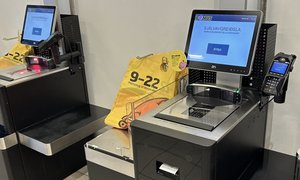Oil companies have for a long time being looking for a clear-cut taxation situation between the Faroes and the UK. A dual tax agreement has now finally been agreed between the two countries, and this will probably increase the interest to work and operate in the Faroes
The issue is very often raised; there is nothing as unclear as taxation systems, and when considerations have to be taken regarding the tax systems in two countries, the chain has simply come off the bike. This is the situation the international oil companies have been facing, if they intended to operate in the Faroes. The taxation system has been quite unclear and for many oil companies based in London, this unclear situation has created problems.
The new taxation agreement however has turned things around. On the 20th of June 2007, Mr Magni Laksafoss, the government minister for fiscal affairs and the UK tax minister, Mrs. Dawn Primarolo signed a new dual taxation agreement, which will come into force on the 1st of January 2008, after it supposedly is passed both by the UK and Faroe parliaments.
Satisfied minister
The Faroe minister is very pleased with this new agreement, which he hopes will increase the interest of foreign oil companies to work here: -“The oil industry has for a long time been requesting clear-cut rules on tax issues. Therefore I estimate this agreement can only be an advantage for British companies and people working in the Faroes”, says Mr Laksafoss.
He is aware of oil companies refraining from working in the Faroes, e.g. activities which could be done here being done abroad instead: -“If the oil revenues, which the Faroes have received to date would have been larger or less if this dual tax agreement had been in force all the time, we will never know, but we are aware of oil companies electing to allocate activities abroad, which could have been performed here, directly due to the unclear tax situation”, says the minister, and he adds: -“Foreign oil companies have made it known that their interest in having oil activities based in the Faroes is very much linked to exactly this agreement”.
The situation has been that both the UK and the Faroes have each in their own way implemented a so-called “global taxation system”, which means that all activity in a specific area was accordingly taxed in that area.
Many birds nests to unravel
- “Through this dual tax agreement you should never be taxed twice. On the other hand an agreement has been reached between the two countries how these tax revenues shall be divided”, says Mr Laksafoss.
It normally takes a long time to reach such agreements, as there are so many aspects to take into consideration: –“As an example let me mentioned pension funds. Which country shall receive the tax revenue? The country where the pension receiving person lives or the country in where the pension fund is located? This is just one of the many questions which must be settled before an agreement is signed. Over these past few years there are many examples of Nordic senior citizens, whose official papers have been transferred to southern European countries, where tax is substantially lower. Another issue is, how do you tax people and how do you tax investments?”, says the minister.
While all these questions have fallen into place through this bilateral agreement between the UK and the Faroes, the Nordic countries, of which the Faroes and a partner to, are working on a new multilateral tax agreement, which is intended to come into force in 2010.














